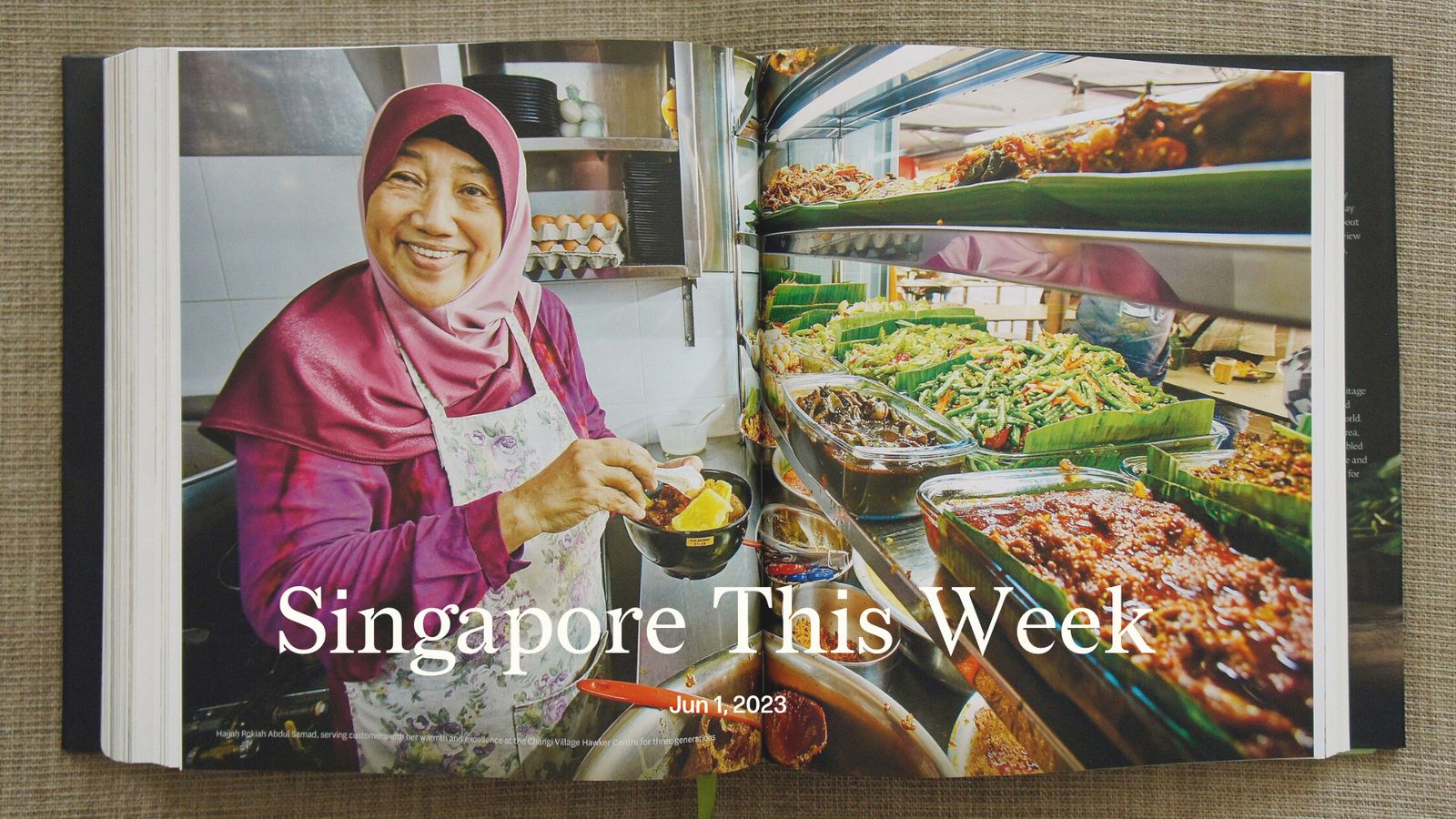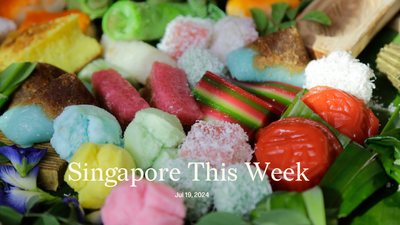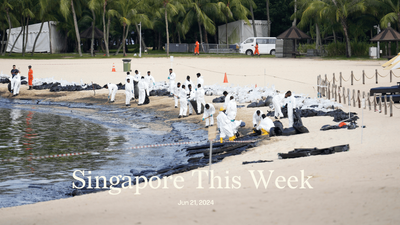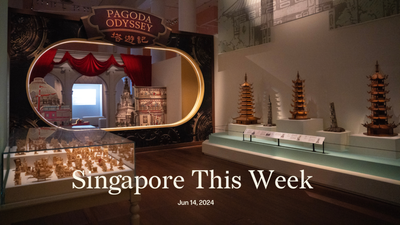Politics: Halamak
Halimah Yacob, Singapore’s president, will not be running for a second term—the election must be called by September 13th—despite acknowledging that it’s been an honour and privilege to have served. “The president has significant constitutional, ceremonial, and community-related duties, and holds the second key to our reserves, and to key appointments in the public service,” she also said, in a rebuff to persistent suggestions that the office is limp. The 68-year-old decided against it without giving any reason. It’s unlikely to be health or age—her immediate predecessors, Tony Tan (then 71) and SR Nathan (75), were older when they began their terms. Not performance either—officials, analysts and the public have lauded her as she pushed forward on her primary aim, “to help create a more caring and compassionate society.” The announcement will fuel speculation that she has been sidelined by the ruling People’s Action Party (PAP) elders, who apparently don’t trust her to win the votes of Singaporeans (especially, in their racially-charged worldview, if she faces a Chinese male). PAP heavy-weights passing through the rumour mill include Lim Boon Heng and Khaw Boon Wan, former ministers, and Tharman Shanmugaratnam, senior minister. Halimah’s ascent to power in 2017 was controversial for numerous reasons, including the fact that the government changed the Constitution to limit it to Malays—something positioned as representation but what many perceived to be a manoeuvre to rule out Tan Cheng Bock, a former PAP MP who’s switched sides. Halimah won in a walkover, after the government declared that no other person qualified (a possibility this year too). “History might remember her as Singapore’s first female president or the first head of state to live in public housing when she initially assumed office,” said The Straits Times. Well, that’s the PAP’s version: more fantasy than history. The people will remember how she was seemingly installed by her party—and then just as quickly discarded.
Society: Defenders of the Raj(ahs)
Prominent PAP fans have come out strongly in support of ministers Vivian Balakrishnan and K Shanmugam. Calvin Cheng, a former nominated member of parliament, characterised the legitimate criticisms about Shanmugam’s potential conflicts of interest as “vindictive witch-hunts” from “enemies” eager to take “a stab at him”. Ben Leong, an associate professor of computer science at the National University of Singapore, made the extraordinary declaration that million-dollar salaries are insufficient payment for politicians who have to deal with public criticism. (Oh, their poor ears.) Leong also reframed the narrative in order to smear Singapore’s opposition: “Does any reasonable person think that the current opposition politicians can run this country?” Yishen Kuik indulged in a lengthy exposition about the onerous expenses incurred while living in palatial black-and-white bungalows. (Oh, their poor wallets.) They all fail to grasp the essence of RidoutGate, which is about structural inequities in the property market, and perhaps the system at large. Few Singaporeans doubt that the ministers followed procedures (the salient questions for which are in “Strengthening the Singapore system: the Ridout saga and conflicts of interest”). Yet procedural legitimacy doesn’t equate to substantive, which is underpinned by notions of fairness and values. Why does Singapore maintain colonial properties that only a few can afford to upkeep? Even if black-and-whites have architectural and historical value, does Singapore need to also “preserve” all the land around them? How much are ministers making through arbitrage—renting out their own properties at market rates while gleefully renting black-and-whites at knockdown rates? We’re unlikely to get answers to these questions, although if Singapore required asset declarations from its politicians, as other democracies do, and as many suggest we should, then we’d have an estimate for the last. “If I were Ministers Shan and Vivian, I would retire, and ride off into the sunset in an open top Ferrari with my middle finger in the air,” Cheng wrote. It’s a fitting image for the Rajahs of Ridout.
Society: ‘Curiouser and curiouser’
The tragedy of Satwant Kaur highlights again the ephemeral nature of the internet. Her elitist take on the difference between “HDB people” and “private residence people” was so appallingly tone-deaf and condescending as to make one wonder if she, a self-titled “nationalist”, even exists. (Her account has since been deleted, but nothing ever wholly disappears on the web.) Kaur had lamented that it was hard to live in Singapore because the government allowed HDB (Housing Development Board) residents to work in private residential areas. Hence, to protect her “#uniqueidentity” it was “necessary to limit contact” with “HDB people”, who’re “very different”. “They are about money, not values,” she wrote. Some 80 percent of Singaporeans live in an HDB flat, and Kaur’s opinions left netizens fuming; some responding with racist, sexist or xenophobic remarks. Others were more circumspect: “The easy one [option] is to call her derogatory names,” wrote Shamir Salahudin. “The more difficult one is to engage with her and understand why she said all these seemingly disparaging remarks…and more importantly, who else agrees with her sentiments.” Nadine L, a law undergraduate, engaged Kaur in a revealing, albeit short-lived, conversation on LinkedIn, which exposed other questionable beliefs, including about Chinese people, working mothers and blue-collar workers. At the heart of the furor around Kaur’s comments lie larger questions around freedom of speech. Might class prejudice ever be regarded as hateful or harmful speech? Is Kaur’s merely an opinion that should be protected in the marketplace of ideas? Is the self-policing and self-regulation of her more bigoted critics sufficient? And when, if ever, should the state intervene? These are the thorny questions that Singaporeans (and others around the world) will continue grappling with as we contend with the frenetic, social-media-driven public discussions of our times.
Arts: Khir Johari wins big
“This is not a cookbook. It is the unwritten story of a people,” reads the promotional text for The Food Of Singapore Malays: Gastronomic Travels Through The Archipelago. The not-a-cookbook’s author, local food historian Khir Johari, may now have to live with the label, after it won the “Best of the Best Book in the World” prize at the 28th Gourmand World Cookbook Awards (the “Oscars” of the cookbook world). The 621-page behemoth— which includes 400 photographs, 40 recipes as well as essays on Malay history, culture and language, and an afterword by Jom’s history editor Faris Joraimi—beat out 1,139 other nominees shortlisted from more than 100,000 publications across 230 countries. It’s an incredible feat, although Khir is no stranger to awards: in Singapore, the book was recognised as Best Book of the Year (2022), Best Culinary History Book and even Best Printer (Markono), just to name a few. And rightly so. The book is an epic 11-year project that celebrates and examines Malay heritage and culture through food. It also serves an important archival role, as some of the cooks Khir interviewed have since passed away. Their wealth of knowledge in what Khir calls an “under-researched, under-recognised” field is now preserved. The genre-busting book also expands our local understanding of food writing. Khir transcends the usual recipe-driven plumbing of traditional foods that characterises most cookbooks in Asia—offering instead nuanced, intentional narratives which immerse the reader, as he said, in the story of a people. The Food Of Singapore Malays: Gastronomic Travels Through The Archipelago is available here.
Arts: Poetry is a luxury computers can afford
Josephine Teo, minister for communications and information and minister-in-charge of the Smart Nation Initiative, posted a bizarre video to her social media feeds this week. Firing up ChatGPT, she used the AI tool (read: sophisticated auto-complete) to compose a “poem” to mark the departure of Aaron Maniam, her ministry’s deputy secretary, from the civil service. Maniam, a self-declared polymath, is himself a poet, who in 2007 was shortlisted for the Singapore Literature Prize. Teo’s composition, if one can call it that, demonstrates the government’s long-standing failure to understand the point of art. A few rhyming lines does not a poem make, especially when those lines are “In Singapore’s digital future, you believed,/With Estonia’s lessons, you’ve carefully sieved,”. More crucially, why do the robots get to indulge in the act of creation instead of us humans? Once again, our politicians have placed too much emphasis on the end product and none on the journey.
History weekly by Faris Joraimi
Once plantation land bearing gambier, nutmeg and pepper, the Tanglin area is now synonymous with elite ease. Teochew towkays and Sultan Abu Bakar of Johor (r. 1862-1895) had addresses there. But it was the Settlement’s rich Europeans, retreating from the municipal downtown’s noise and crowds, who developed its reputation for luxury living in the 1840s. The surgeon Thomas Oxley and lawyer William Napier, former residents, have left their names on its roads. What about Ridout Road that houses the well-to-do of today’s Singapore? It was named after a soldier, Major-General Sir Dudley Howard Ridout. Born in Calcutta, British India in 1866, Ridout came from a distinguished Canadian military family. His grandfather served in the war of 1812, fought between Great Britain (which then ruled Canada) and the US. Native American nations were involved as allies on both sides. Ridout’s father took part in 1865’s Anglo-Bhutan war, in which the British invaded a Himalayan kingdom with no modern military and still somehow suffered humiliating losses. They won in the end, though, taking 20 percent of Bhutan’s territory, while the rest remained formally independent. Ridout himself fought for Britain in South Africa before being transferred to the Singapore Command during the first world war. He served in the colony’s government until 1924, having also set up Singapore’s first intelligence service in 1915. One of Jom’s previous essays pondered the trouble with our streets named after colonial generals. The same road leads from imperial brutality to the wealth that those black-and-white bungalows represent. Who better to inhabit them, than ministers using similar methods of surveillance and control?
Tech: Circles.Life in the Middle East
Many of us will remember the days of having to go into a physical telco store to purchase our phone plans. That started to change in 2016, when Circles.Life, the first digital telco, entered the market. It has since grown to serve over one million customers. However, what many often don’t realise is that Circles.Life has a software-as-a-service (SaaS) platform called Circles X. The platform assists operators, including KDDI Corporation, Singtel, Three, T-Mobile and XL Axiata, in launching and managing their digital brands. It has recently announced a joint venture with Abu Dhabi-headquartered e& International, which will expand its digital telco services across the Middle East. This partnership marks Circles.Life’s first entry into the region, extending its reach to 14 markets. The deal is expected to result in the launch of a new digital telco in the near future, led by John McEvoy, its CEO, who brings expertise from his previous roles at e& and Virgin Mobile. Given the anticipated merger with SPAC Bridgetown Holdings—backed by Peter Thiel and Richard Li—this upcoming partnership offers potential growth opportunities and an entrance into the public market for Circles.
Tech: Trust the path to break even
Since its launch last September, Trust Bank, a Singapore-based digibank, has experienced rapid growth, amassing over S$1bn in deposits and completing 24 million transactions. This is a continuation of its torrid early growth: it onboarded 100,000 customers in its first 10 days of operations and within a month had 650,000 weekly active users. This impressive performance is attributed to the bank’s strategic relationship with its parents, Standard Chartered Bank and FairPrice Group, as well as its strong focus on tailoring services for Singaporeans based on user feedback. Trust Bank offers a range of financial products, including savings accounts, credit cards, and family personal accident insurance, and is integrated with FairPrice Group’s loyalty programme, Link Rewards. Trust Bank has ambitious plans to become Singapore’s fourth-largest retail bank—after DBS, OCBC and UOB—by the end of next year and to break even by 2025. It appears to be in an advantageous position compared to GXS Bank, the digibank operated by Grab and Singtel. GXS recently paused the onboarding of new customers after reaching S$50m maximum deposits during its initial launch phase. Given Trust Bank’s deposits are now more than 20 times that of GXS’s, is Singapore’s digibank race already over?
If you enjoy Jom’s work, do get a paid subscription today to support independent journalism in Singapore.







